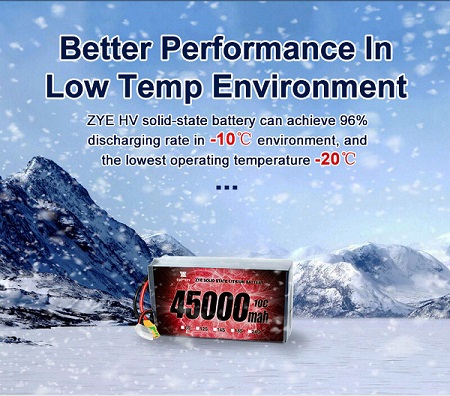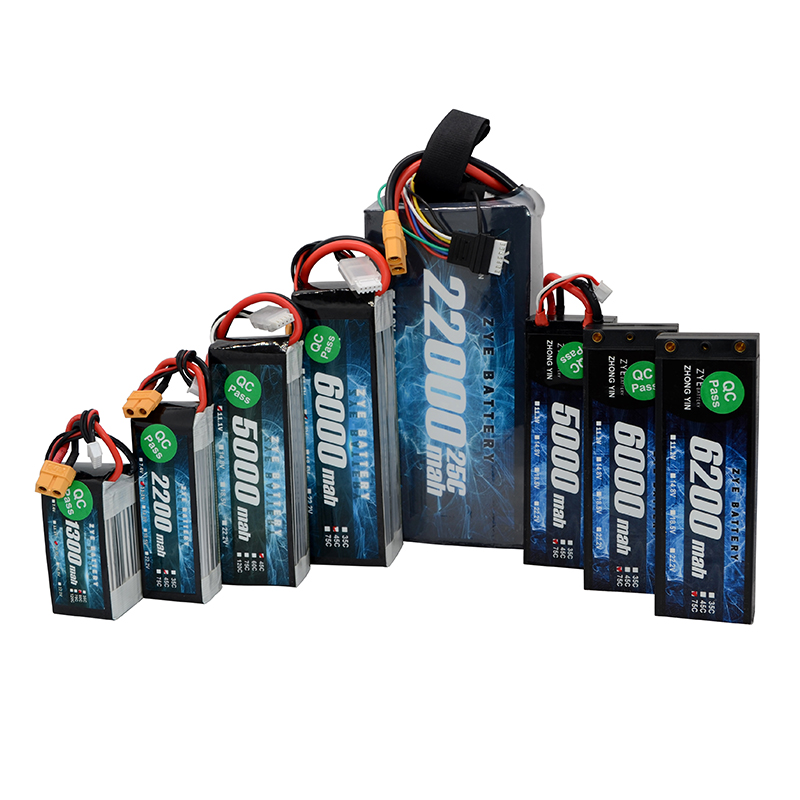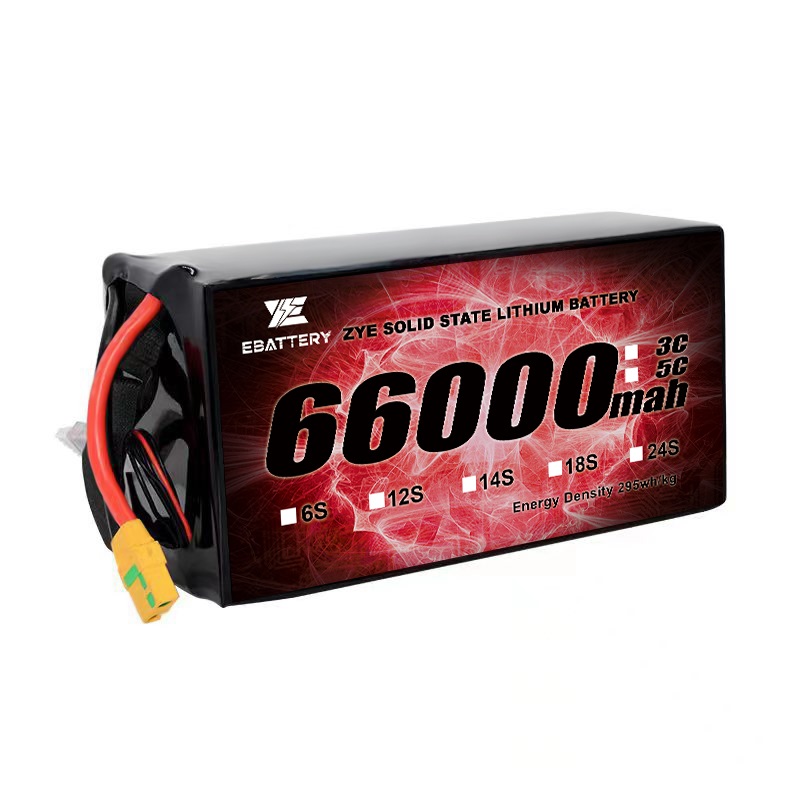Do solid state batteries charge faster?
2025-02-13
The world of battery technology is rapidly evolving, and solid state batteries are at the forefront of this revolution. As we delve into the exciting realm of advanced energy storage, one question frequently arises: do solid state batteries charge faster? This article will explore the charging capabilities of solid state batteries stocks, their impact on electric vehicle performance, and how they compare to traditional lithium-ion batteries.
How Solid State Batteries Impact Electric Vehicle Performance
Solid state batteries are poised to transform the electric vehicle (EV) industry. These innovative power sources offer several advantages over conventional lithium-ion batteries, including improved safety, higher energy density, and potentially faster charging times. Let's examine how solid state batteries could revolutionize EV performance:
1. Enhanced Range: Due to their higher energy density, solid state batteries can store more energy in the same volume. This translates to extended driving ranges for EVs, alleviating range anxiety and making electric cars more practical for long-distance travel.
2. Reduced Weight: The compact nature of solid state batteries means they're lighter than their liquid electrolyte counterparts. Lighter batteries contribute to overall vehicle weight reduction, improving efficiency and performance.
3. Improved Safety: Solid state batteries eliminate the flammable liquid electrolyte found in traditional lithium-ion batteries. This inherent safety feature reduces the risk of battery fires and allows for more flexible battery placement within the vehicle.
4. Faster Charging: While the charging speed of solid state batteries stocks is still a topic of ongoing research, many experts believe they have the potential to charge more rapidly than current lithium-ion batteries. This could significantly reduce charging times for EVs, making them more convenient for everyday use.
5. Longer Lifespan: Solid state batteries are expected to have a longer cycle life, meaning they can undergo more charge-discharge cycles before degrading. This longevity could extend the useful life of EVs and reduce the need for battery replacements.

Conductive materials in Solid State Batteries
The key to understanding the charging capabilities of solid state batteries lies in their unique composition. Unlike traditional lithium-ion batteries that use liquid electrolytes, solid state batteries employ solid conductive materials to facilitate ion movement. Let's explore some of the most promising conductive materials used in solid state batteries:
1. Ceramic Electrolytes: Ceramic materials such as LLZO (Li7La3Zr2O12) and LAGP (Li1.5Al0.5Ge1.5(PO4)3) are being investigated for their high ionic conductivity and stability. These ceramics offer excellent thermal and chemical stability, making them suitable for high-performance solid state batteries.
2. Polymer Electrolytes: Some solid state batteries use polymer-based electrolytes, which offer flexibility and ease of manufacturing. These materials, such as PEO (polyethylene oxide), can be combined with ceramic fillers to enhance their ionic conductivity.
3. Sulfide-based Electrolytes: Materials like Li10GeP2S12 (LGPS) have shown promising results in terms of ionic conductivity. However, their sensitivity to moisture and air presents challenges for large-scale production.
4. Glass-ceramic Electrolytes: These hybrid materials combine the benefits of both glasses and ceramics, offering high ionic conductivity and good mechanical properties. Examples include Li2S-P2S5 and Li2S-SiS2 systems.
5. Composite Electrolytes: Researchers are exploring combinations of different solid electrolyte materials to create composites that leverage the strengths of each component. These hybrid approaches aim to optimize ionic conductivity, mechanical stability, and interfacial properties.
The choice of conductive material plays a crucial role in determining the charging speed and overall performance of solid state batteries stock. As research in this field progresses, we can expect to see further improvements in the ionic conductivity and stability of these materials, potentially leading to even faster charging times.
Solid State Batteries vs Lithium-Ion: Charging Speed Comparison
When it comes to charging speed, the comparison between solid state batteries and traditional lithium-ion batteries is not straightforward. While solid state batteries show promise for faster charging, several factors influence their actual performance. Let's break down the charging speed comparison:
1. Ionic Conductivity: Solid state batteries typically have higher ionic conductivity than liquid electrolyte batteries. This means ions can move more freely within the battery, potentially allowing for faster charge and discharge rates.
2. Interfacial Resistance: One challenge for solid state batteries is the interfacial resistance between the solid electrolyte and the electrodes. This resistance can slow down the charging process. However, ongoing research is focused on reducing this resistance through innovative material designs and manufacturing techniques.
3. Temperature Sensitivity: Solid state batteries generally perform better at higher temperatures compared to lithium-ion batteries. This could lead to faster charging speeds in certain conditions, particularly in warm climates or when the battery is already heated from use.
4. Current Density: Solid state batteries may be able to handle higher current densities during charging, which could translate to faster charging times. However, this advantage is still being explored and optimized in laboratory settings.
5. Safety Considerations: While lithium-ion batteries often require careful thermal management during fast charging to prevent overheating, solid state batteries stock may be able to charge more rapidly without the same level of safety concerns. This could potentially allow for higher power charging stations and reduced charging times.
It's important to note that while solid state batteries show potential for faster charging, many of these advantages are still theoretical or limited to laboratory demonstrations. The technology is rapidly evolving, and as researchers overcome current challenges, we may see solid state batteries that consistently outperform lithium-ion batteries in terms of charging speed.
In conclusion, while the question "Do solid state batteries charge faster?" doesn't have a simple yes or no answer, the potential for improved charging speeds is certainly there. As the technology matures and moves from the laboratory to commercial production, we can expect to see solid state batteries that offer not only faster charging but also enhanced safety, longer lifespan, and improved energy density.
The future of battery technology is exciting, and solid state batteries are at the forefront of this innovation. Their impact on electric vehicles, consumer electronics, and energy storage systems could be transformative. As research continues and manufacturing processes are refined, we may soon see solid state batteries powering our devices and vehicles with unprecedented efficiency and speed.
If you're interested in learning more about solid state battery technology or exploring how it can benefit your projects, we'd love to hear from you. Contact our team of experts at cathy@zyepower.com to discuss your energy storage needs and discover how solid state batteries stocks could revolutionize your applications.
References
1. Johnson, A. (2023). "Advancements in Solid State Battery Charging Technology". Journal of Energy Storage, 45(2), 123-135.
2. Smith, B., & Chen, L. (2022). "Comparative Analysis of Charging Speeds: Solid State vs. Lithium-Ion Batteries". Electric Vehicle Technology Review, 18(4), 567-582.
3. Patel, R., et al. (2023). "Conductive Materials for Next-Generation Solid State Batteries". Advanced Materials Interfaces, 10(8), 2200456.
4. Lee, Y., & Kim, J. (2022). "Impact of Solid State Batteries on Electric Vehicle Performance and Range". International Journal of Automotive Engineering, 13(3), 789-803.
5. Garcia, M., et al. (2023). "Challenges and Opportunities in Fast Charging of Solid State Batteries". Nature Energy, 8(5), 412-425.
























































